As we grow older, we may experience changes in our mobility and sense of balance, which can lead to the possibility of a fall. External factors, such as slippery floors, loose rugs, floor clutter and icy walkways, can also lead to senior falls. However, being aware of different measures one can take to prevent issues can go a long way toward remaining safe and secure.
Most reputable retirement communities will prioritize the safety of their residents, assisting with fall prevention by maintaining the premises, inspecting buildings and outdoor areas, and providing tools and installations for older adults to aid mobility.
Because of the cold weather, slick ice, and blustering snow, fall prevention for seniors in winter becomes more complicated. This article provides helpful tips on how older adults can keep safe during this season and will cover topics such as factors that lead to falls, how to prevent falls, and what to do when a fall occurs.
Possible Causes of a Fall
Statistically speaking in Canada, it’s clear that older individuals are at a greater risk for falls.There are several potential reasons that can factor into a fall incident for older adults, depending on the circumstances and environment at the time. Here are some examples that might potentially play a part:
1. Medications and prescriptions
Some medications used to treat certain health conditions may cause drowsiness and fatigue, increasing the chances of a fall. When one takes such medicines, it can be a good idea to wait until the effects wear off before moving around without assistance.
2. Vision impairment
Vision impairment may also cause falls in older adults. For instance, an individual with blurry vision or impaired eyesight might be more prone to misjudging distances, which can cause slips and stumbles.
Vision impairment can be caused by several factors, from medication effects to an unaddressed change in eyeglass prescriptions. Also, using double or triple-lens prescription glasses when walking can result in fall accidents.
3. Uncomfortable footwear
Wearing tight or uncomfortable footwear may not only cause pain and discomfort but can also increase the difficulty of walking and maintaining balance, which increases the chances of a fall. On the other hand, wearing loose and ill-fitting footwear can reduce traction and balance, increasing the chances of slipping or stumbling.
4. Health conditions
Health conditions such as stroke, heart disease, arthritis, dementia, etc., may affect one’s ability to stay balanced on their feet, leaving them at a higher risk for senior falls.
5. Environmental factors
Environmental factors like slippery grounds and sidewalks from rainfalls, melted snow, or slick ice can also lead to senior falls.
6. Floor traffic and obstacles
Leaving several items, such as smartphone chargers, shoes, empty food wrappers, etc., sprawled on the floor can contribute to falling.
How To Prevent A Fall
Considering the risk of complications and the adverse outcomes associated with a fall, it’s essential to take the proper measures to ensure you or your loved ones can stay safe and healthy.
This section provides tips on fall prevention for seniors.
1. Exercise regularly
Exercises are essential activities that contribute to healthy living for any individual. In particular, regular exercise can strengthen and improve the sense of balance in older adults, reducing the risk of falling.
You can also engage in stretching exercises for improved muscle flexibility and enhanced reflexes. Older adults should contact their physician for recommendations on the physical activities that are best suited for them.
2. Regular check-ups
Regular visits to a doctor for checkups can go a long way toward preventing fall accidents. These check-ups can help identify potential health risks and understand the current state of their health. From vision to mobility issues, a visit to the doctor’s office can bring attention to potential problems and take care of them before they cause any incidents.
3. Review your medications
When taking new or existing medications, it’s always important to report any side effects or changes in health to your doctor immediately. This can make it easier to determine when a specific prescription is causing conditions like dizziness or reduced motor function that might increase the chances of a fall. Your doctor can determine an appropriate alternative instead.
4. Reduction of alcohol intake
High levels of alcohol in the blood can affect a person’s sense of balance. Older adults that enjoy drinking should take additional care when moving around to reduce the risk of falling.
5. Clear floor paths
Keeping living spaces and walkways free of obstructions can go a long way toward fall prevention. Older adults are encouraged to do their best to keep their surroundings organized and obstacle-free and call on assistance to do so when necessary.
6. Use non-skid shoes
Shoes with gripping soles go a long way to prevent falls, especially on slippery floors or ice.
The following are helpful tips on how to prevent falls at home.
- Install a bath chair, and detachable shower head to allow for sitting while bathing.
- Ensure a non-skid mat is placed beside the tub, within the tub, and by the toilet and hand basin.
- Leave bathroom doors unlocked while in use.
- Avoid wearing flip-flops or socks on wooden floors.
- Install hand railings on both sides of the staircase.
- Get rid of throw rugs and raised doorway thresholds.
- Use assistive devices, like a walking cane, to provide stability when walking. Ensure that they have rubber tips that prevent skidding. For crutches, scrub their ends with an abrasive pad to provide some friction.
- Polish floors with non-skid wax and clean up spills immediately.
What To Do When a Fall Occurs
If a fall does occur, it’s essential to remain calm. Moving an individual after a fall is usually not recommended; instead, check for any injuries and ask the fallen person to communicate any pain they’re feeling.
If there are no significant injuries or pain, carefully have the fallen person roll to their side and reassess for any damages or pain. You may choose to assist them with helping them back up or look around for a sturdy chair that can provide stability to help them do so.
If the fallen person cannot get up with or without your assistance, immediately seek help. Older adults should always have a cellular phone close by or wear an alert device for emergencies if a fall occurs when the older individual is alone. Additionally, all fall incidents, severe or otherwise, should be followed up with a healthcare professional to diagnose any potential complications.
Conclusion
Senior falls can affect an individual’s independence, and appropriate measures to avoid fall accidents are essential to maintain a healthy lifestyle. However, following the tips mentioned above on fall prevention for seniors should help minimize or eliminate any problems.


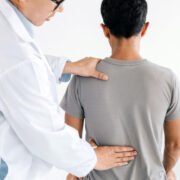
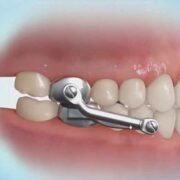

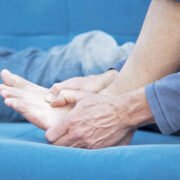
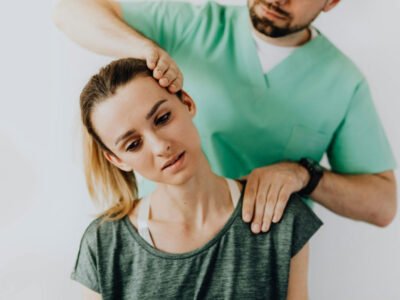
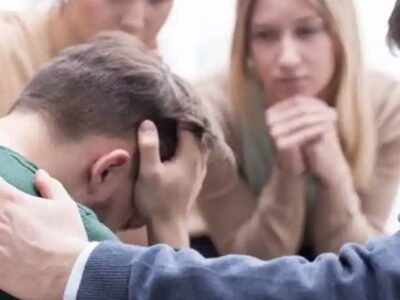






Comments